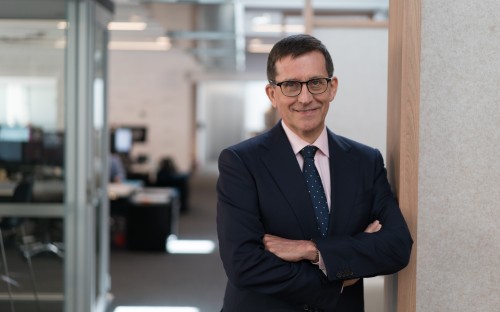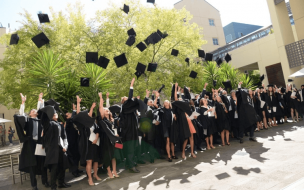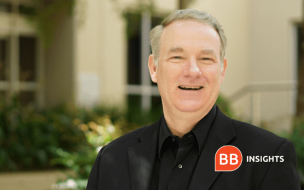But, above all, “there’s a big challenge concerning trust,” he says.
In the court of public opinion the jury is out—“people feel that business has lost its license as a servant of the wider community,” asserts Ian.
We live in the digital age, which means that information is ubiquitous—institutions that in the past could brush their troubles under the rug are at risk of exposure through social media, and the speed at which negative stories are shared. See Facebook.
“The greatest challenge facing business today is its legitimacy in the eyes of consumers and citizens,” says Ian, before asking: “How can business regain trust in the eyes of ordinary folk, in an environment where the whole basis of trust creation is shifting beneath us?”
At Melbourne Business School, Ian wants to harness a culture of collaboration, drawing on the expertise within the wider university community. “There are people in philosophy, political science, computer science, ethics, and elsewhere who have other insights into how this process is evolving, that we need to draw on as we think about the future of business,” he says.
So, how will that affect business education at Melbourne Business School?
Ian says the walls between the business school world and corporations will become ever more porous.
Being the fastest growing city in Australia, with the quickest rate of internal migration, Melbourne is well placed to tap into industry expertise. That can help shape the school’s curriculum to suit the needs of business.
Ian joined Melbourne Business School after a long career with Deloitte. And, he says, the company and others like it want to be strongly involved and engaged in what major business schools around the world are doing.
The school’s Master of Business Analytics program was codesigned with major corporate clients, who are dedicated to hiring the students on company internships. Standout candidates are guaranteed jobs at the end of the process too.
Understanding the need for more corporate collaboration comes after a review into business and economic education at the school, led by former KPMG chairman, Peter Nash—Ian is currently working on a response to the review with the school’s deputy vice-chancellor, and co-dean, which will look to shape the future of business education at Melbourne Business School.
Interestingly, he says that the Nash review highlighted that the demand for online education was nowhere near the levels that had been expected. “It’s still very much a view in the business community that what goes on inside a classroom—engagement with peers, the cut and thrust of classroom debate—is as valuable if not more valuable than it’s ever been.”
The greatest strength of business education is its ability to form a class of people who will be professional peers at every stage of their careers. In “testing each other, learning from each other, and sharpening each other,” Ian says the infrastructure is in place for continued development in the corporate space long after graduating from business school.
Modern business trends are making their way into the curriculum at the school. There are elements of the Master of Business Analytics course accessible to MBA students—in principle, students can graduate with a dual degree.
“The area of artificial intelligence and machine learning are [also] things we are developing,” adds Ian. “We want people to be in a position where they are familiar with the potential of technology and how it will shape organizations.”
Melbourne Business School has seen a year-on-year rise for the past three years in the Financial Times’ Global MBA ranking—it is currently 66th.
Ian thinks that the rankings will naturally continue to rise as the school invests in its curriculum and modernizes alongside industry needs—weaving together the interests of current students, alumni, and corporate clients will be key.
“The more we serve and bring those groups together,” he concludes, “the more our rankings will reflect out success. We are in a virtuous cycle in which we feed off one another to generate intellectual property, business, and academic success.”







